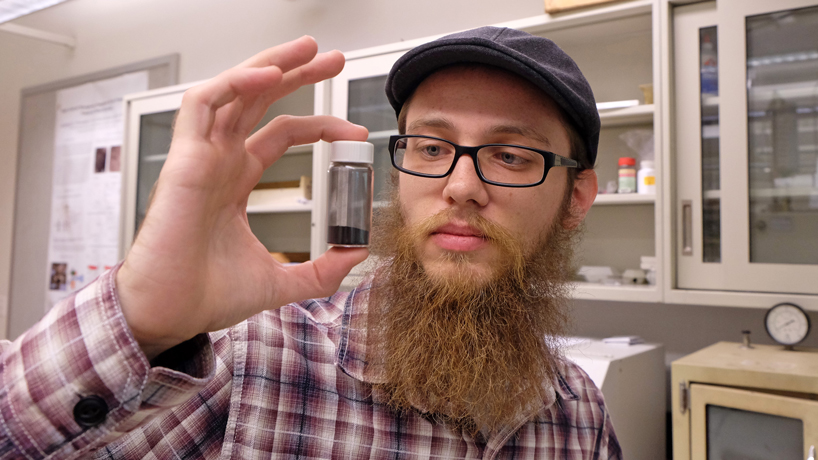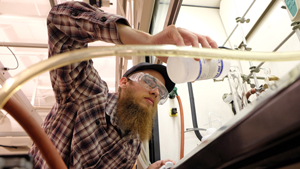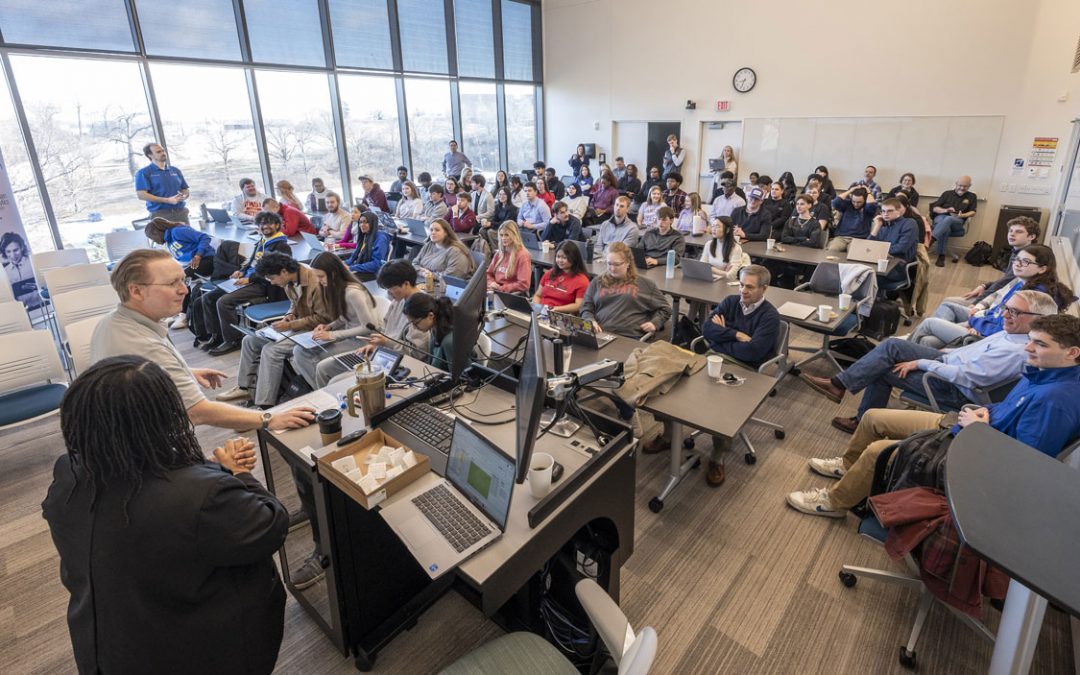
Senior physics major Henry Hamper eyes a batch of the nanoporous carbon material he makes for research projects aimed at improving batteries and hydrogen-powered vehicles. (Photos by August Jennewein)
In one corner of a physics lab in the University of Missouri–St. Louis’ Center for Nanoscience, undergraduate Henry Hamper is fabricating a batch of nanoporous carbons.
He pours several carefully measured concoctions into a flask containing phenalic resin, the basis for the carbon material. This mixing is just the first step in a cooking process that also involves 24 hours in a vacuum oven followed by 12 hours in an extremely hot furnace.
“If you can control the electronic properties of your material, then you can improve lithium-ion batteries and hydrogen storage material,” Hamper said.
The idea is to “dope” the carbon, adjusting its makeup in various ways to allow a boron or nitrogen atom into the molecular structure. This in turn could make developments such as hydrogen-powered cars more feasible.
“Hydrogen-fueled cars would be cleaner than gasoline-fueled cars,” Hamper said, “but they’re not going to make it if we don’t have safer and more efficient ways to store hydrogen.”
As for lithium-ion batteries, the hope is to increase battery lifespan and capacity. Improvements could mean only having to charge one’s cell phone once a week, Hamper said.
A physics major with a minor in chemistry, his work supports two research projects under way in the lab, where he began volunteering this past winter.
“I want to get my PhD, and if you want to go to grad school, it’s important to get involved early on,” Hamper said. “I enjoy doing research. It’s a little less structured than coursework, and it’s motivating. This is something that people are still struggling to work out.”
Hamper was selected as one of nine recipients of a $1,000 undergraduate research grant from the College of Arts and Sciences this spring. In addition to providing the funds to purchase some new equipment for the lab, Hamper says the process of applying for the grant was itself a useful learning experience.
“It taught me a lot about what I do, because when I first started, I didn’t necessarily understand the details of what was going on,” he said. “Writing the proposal allowed me to understand it a lot better.”
Although Hamper has always been curious about how things – and the universe – work, he originally pursued a business degree. After several years along that path, he had second thoughts.
“I started to think that maybe college wasn’t for me,” he said. “Then I finally circled back.”
Enrolling at UMSL as a physics major in the fall of 2011, Hamper has found the sciences a better fit. Depending on where he lands for grad school, he thinks it’s likely that he’ll continue doing materials science research.
“This is a good opportunity for me to start diving into the field,” Hamper said. “Having this experience will help me prepare for future research.”
















